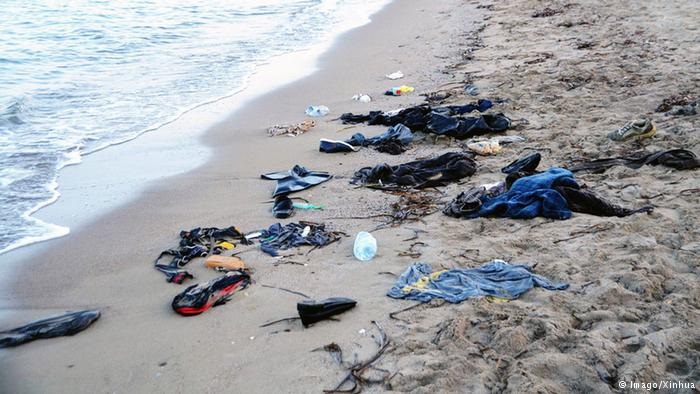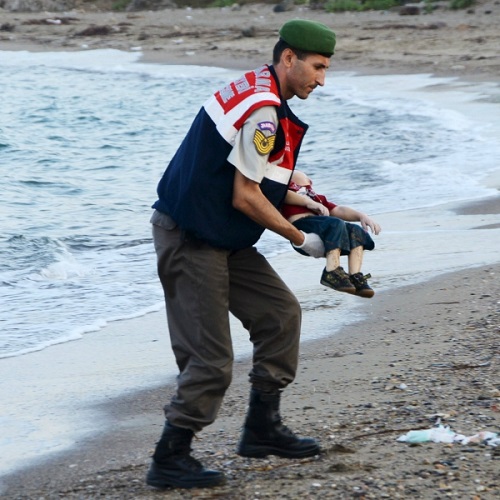By Roger Cohen
Oh, Europe, the Mediterranean, cradle of civilization, is a watery grave. At the side of an Austrian highway, 71 nameless refugees perish, asphyxiated in a modern-day boxcar. Czech authorities, armed with indelible markers but bereft of a sense of history, inscribe identification numbers on the skin of 200 migrants. Others are duped by Hungarian police with promises of “freedom” and find themselves in a “reception” camp (where presumably they are offered a shower).
Oh, Europe, Slovakia wants only Christian refugees, not the Muslims of Syria or Afghanistan. Viktor Orban, the puffed-up little Putin serving as Hungary’s prime minister, says he is protecting “European civilization” read Christian Europe as a 175-kilometer razor wire fence is installed along the Serbian border.
David Cameron speaks of a “swarm” of migrants trying to reach Britain; it is locusts that move in swarms. A three-year-old Syrian boy, his little left hand folded back as if he were asleep in a crib, lies dead on a Turkish beach, his face in the sand, his silent reproach indelible. He was called Aylan Kurdi. His family wanted to bring him to Europe.
The shadows return, freighted with ironies. Orban’s Hungary turns its back on the magnificent Hungary of 1989, the first country to open the Iron Curtain a crack as it allowed tens of thousands of East Germans to cross into Austria and make their way to West Germany. Orban’s pusillanimous Hungary forgets how, in 1956, at the time of the Soviet invasion, about 200,000 Hungarians fled into Austria and found refuge and freedom in Western Europe.
This petty Hungary also chooses to ignore that, of all the blessings acquired by the former nations of the Soviet bloc when the division of Europe ended, freedom of movement was the most prized. It was secured, this gift, with the fall of a wall. Now Hungary erects one.
Hungary is not alone in its prejudice. The preference for Christian migrants (in small numbers), and equating of Muslims with inevitable menace, is marked across almost all the countries of Central and East Europe that were once part of the Soviet imperium. These states have not known the influx of post-colonial migrants that has changed several West European societies.
Their Jews were almost all killed by the Nazis (with help from local accomplices). Their ethnic makeup was further homogenized through border shifts or mass expulsions (ethnic Germans out of postwar Poland). Their recent history has been of mass emigration in search of job opportunities in the West, not of immigration.
As Jacques Rupnik, a prominent French political scientist, wrote recently in Le Monde, “There is a widespread perception in the East of the Continent that the Western ‘multicultural’ model has failed.” The conviction in these countries is that “migration from the south today equals ‘Islamic suburbs’ tomorrow.”

Oh, Europe, cursed with too much history, thy name is forgetfulness. Thy truth is miscegenation. Thy imagined tribes are just that, an illusion belied by endless migration over centuries. Thy hope is new blood, for racial purity was the altar of thy repetitive self-mutilation. Thy duty is memory, thy covenant with thy children openness and unity, for they must live.
Yes, memory: If Europe cared to remember, it might recall that this is the largest migratory wave since the end of World War II, when millions moved West from Stalin’s totalitarianism. It might also recollect that this mass movement was the culmination of a war that emanated from one of the Continent’s great “civilizations,” Germany a frenzied attempt to impose on the Continent an Aryan super-race and rid it of Jews, Gypsies and others designated by Hitler as subspecies.
Today, refugees clamor to get into Germany. It has said it expects 800,000 this year. Angela Merkel, the chancellor, raised in Germany’s East, has towered over other European leaders because her personal history clarifies the stakes.
“If Europe fails on this question of refugees, its close association with the universal rights of citizens will be destroyed,” she said. And then, almost heretically: “German thoroughness is super, but right now what we need is German flexibility.”
Even German flexibility, an unlikely commodity, is not enough. This is a European crisis. At a time of fracture in the European Union Greece and the euro, Britain and possible exit, rising rightist parties, Vladimir Putin’s threats Europe has been reminded of its core purpose and singular achievement: the ruin and misery it rose from, the abandoned masses it housed, the unity it forged after division had cost so many lives.
The need today is for more unity, a coherent immigration policy among the 28 members, and renewal of the maligned European idea. As Laura Boldrini, speaker of the lower house of the Italian Parliament, put it to me: “When the Mediterranean is a cemetery, we need a Europe 2.0. Nobody can love this Europe today. It is time for a renewed push for a United States of Europe.”
‘Courtesy The New York Times’


